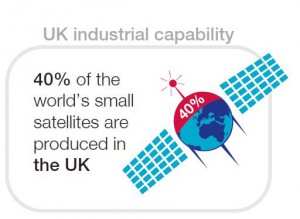8th September 2015 San Francisco, USA
2015: A Space Blogyssey Part 1
with contributions by Patricia Gruver
The exploration of space has gone from science fiction to reality. The 20th century saw a massive expansion in space exploration and technological development, which has continued unabated into the 21st century. The UK is one of the global leaders in the continued advancement of space, reinforcing its commitment to this field and investing greatly to ensure its success.

In 2013, then Minister of State for Universities and Science, David Willets, released the UK’s “Eight Great Technologies”, a government-wide commitment to support UK strengths in science and business opportunities. Of the eight, it comes as no surprise that space/satellites ranked high on that list, with additional investments of £25 million allocated to further developing this sector on top of the £10 million that was allocated in 2011 as part of the National Space Technology Programme.
The UK is currently a world leader in this industry, with strengths in telecommunications, small satellites, and satellite propulsion and space applications. In fact, 40% of the world’s small satellites are produced in the UK and the industry currently employs about 37,000 people and supports around 115,000 indirect jobs as a result. According to The Telegraph, “Britain’s space industry has more than doubled its turnover over the past decade to £11.8 billion a year and is punching above its weight in the international marketplace.” So much so that it is projected that the UK space industry will grow to £40 billion by 2030.
In this three part series, S&I team members in San Francisco, Los Angeles and Houston will highlight recent trips by members of the UK space industry to the US and dive into the unique perspectives of these visits and role the UK has with the American space sector.
For more information about the UK space sector, we encourage you to visit the various agencies and organisations working in this field, including the UK Space Agency and The Satellite Applications Catapult. London Economics has also recently issued a report entitled, “The Case for Space”, which highlights the industry and the impacts it has created for the UK.
In part 2 of this series, you’ll learn about the recent visit of several UK-based start-ups as part of the Space and Satellite Applications Entrepreneurs Mission.